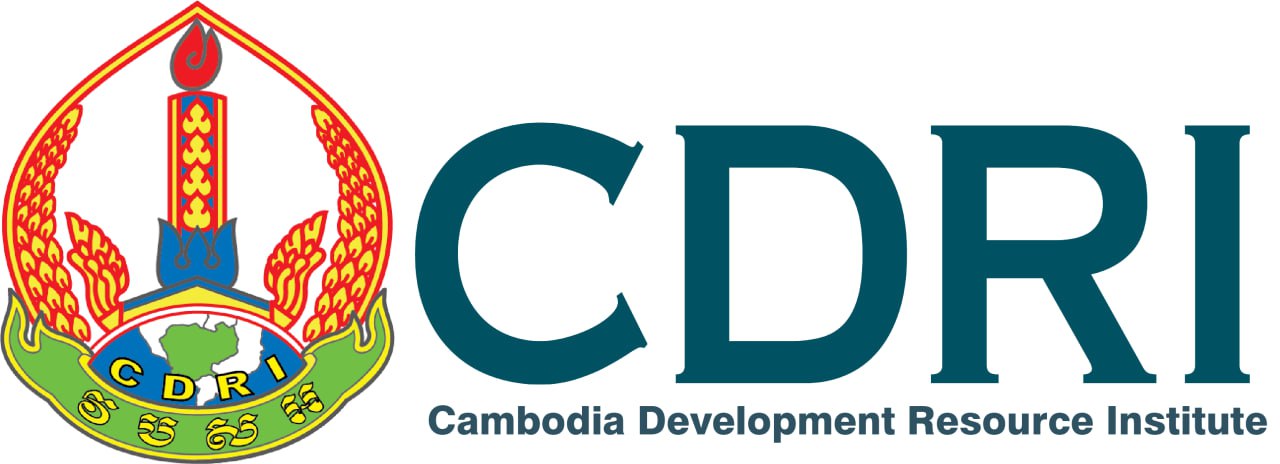Centre for Educational Research and Innovation
The Centre for Educational Research and Innovation (CERI) conducts quality research focusing on education and training in Cambodia and the region to generate knowledge based on data and evidence through rigorous qualitative and quantitative analyses. Based on the generated knowledge, the centre promotes policy dialogue among national and international researchers, policymakers, and practitioners through dissemination workshops and policy dialogues at national and regional levels. CERI also provides training opportunities to its partners and junior researchers as a part of its capacity-building programme. With the financial support from development partners and technical support from an advisory committee, the centre works closely with government agencies, educational and training institutions, civil society organisations (CSOs), and other relevant stakeholders to realise its aims to bring about solutions and innovation in education and training.
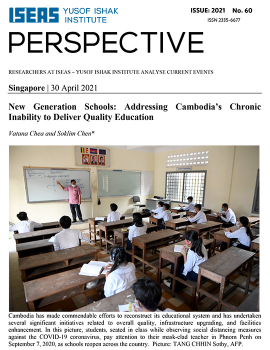
New Generation Schools: Addressing Cambodia’s Chronic Inability to Deliver Quality Education
In recent years, the Cambodian government has introduced a reform agenda to enhance the quality of teaching and learning, improve the bureaucratic administration of education, and address other major challenges affecting public schools. The new agenda has led to several remarkable transformations in Cambodia’s educational system, including the introduction of a new innovative school model called N...
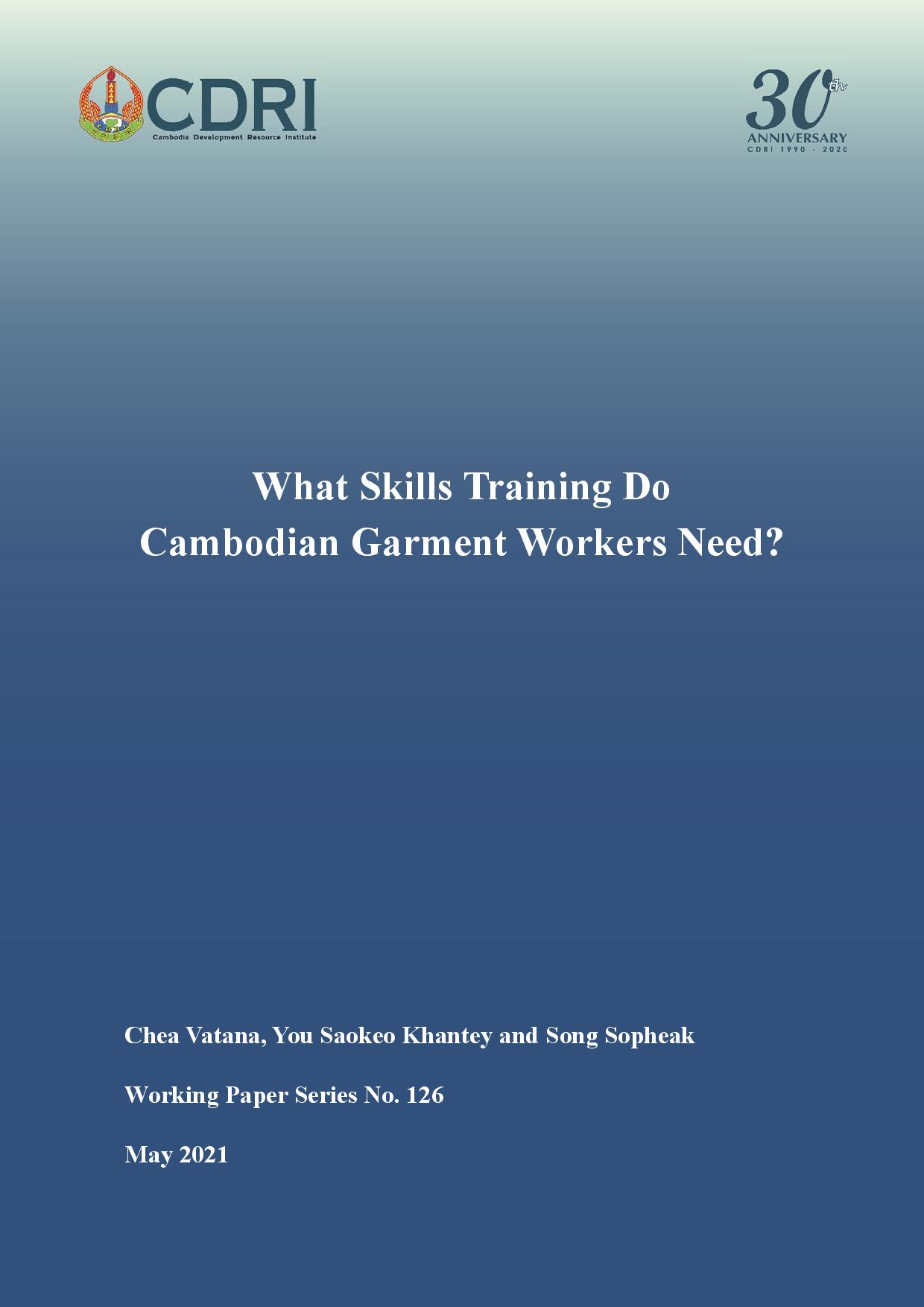
What Skills Training Do Cambodian Garment Workers Need?
This study aimed to identify the current skills of Cambodian garment workers, whether or not they wanted to gain new skills and, if so, what those were. The results revealed that the greatest percentage – 60 – had acquired sewing skills, followed by quality control and packaging skills. More than two-thirds were also able to read, write and calculate, and could use the internet and social networks...
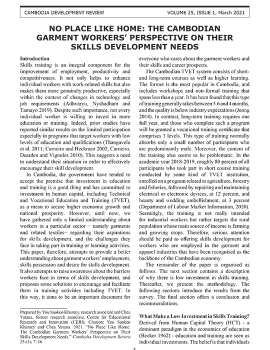
No Place Like Home: The Cambodian Garment Workers’ Perspective on Their Skills Development Needs
Developing skills for current workforce is indispensable in today’s economy. In an attempt to promote investment in skill training for workers in a Cambodian backbone sector, namely garment and textile, this study explores and identifies the problem of underinvestment in their skill training. A total of 787 individual workers are randomly selected using two stages of sampling procedure. The study...
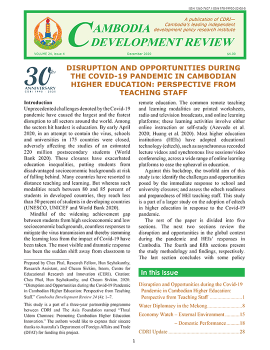
Disruption and Opportunities During the Covid-19 Pandemic in Cambodian Higher Education: Perspective from Teaching Staff
The twofold aim of this study is to: identify the challenges and opportunities posed by the immediate response to school and university closures; and assess the edtech readiness and preparedness of HEI teaching staff. The findings demonstrate that unstable internet connection and difficulty assessing student performance are the biggest obstacles impeding the effective delivery of distance learning...
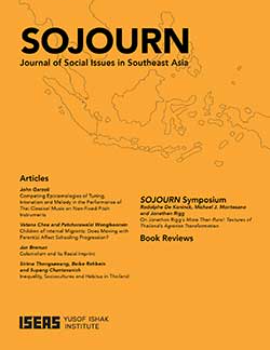
Children of Internal Migrants: Does Moving with Parent(s) Affect Schooling Progression?
Using the 2011 Cambodia Rural-Urban Migration Project, we re-examine the effect of parental migration on the long-term educational progress of children who have accompanied their parents to urban areas by comparing such children with those left behind in rural areas. We use a measurement that captures schooling disruption effect and allows for the possibility that being a migrant child also depend...
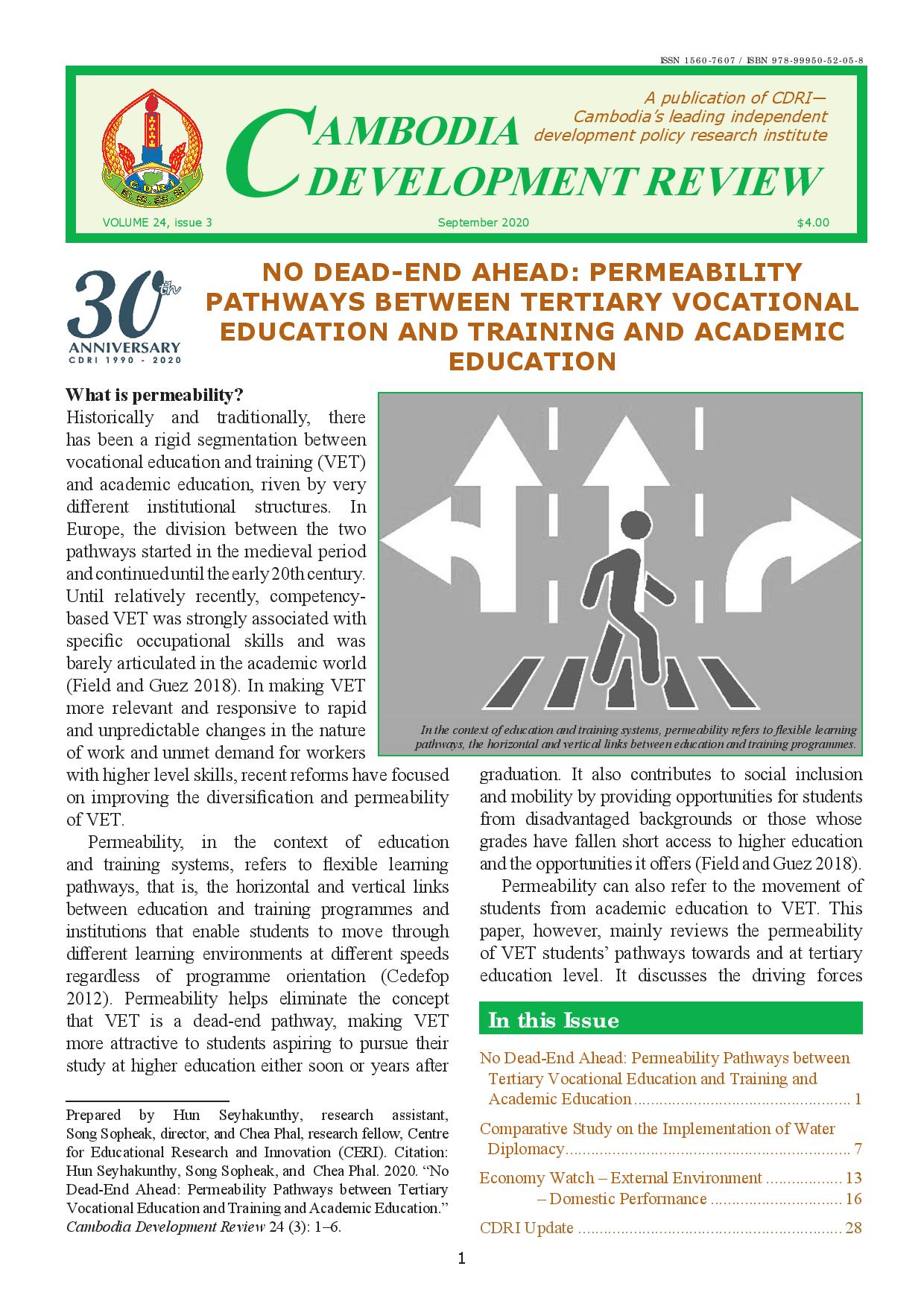
No Dead-End Ahead: Permeability Pathways Between Tertiary Vocational Education and Training and Academic Education
Permeability, in the context of education and training systems, refers to flexible learning pathways, that is, the horizontal and vertical links between education and training programmes and institutions that enable students to move through different learning environments at different speeds regardless of programme orientation. This study aims at discussing the driving forces behind endeavours to...
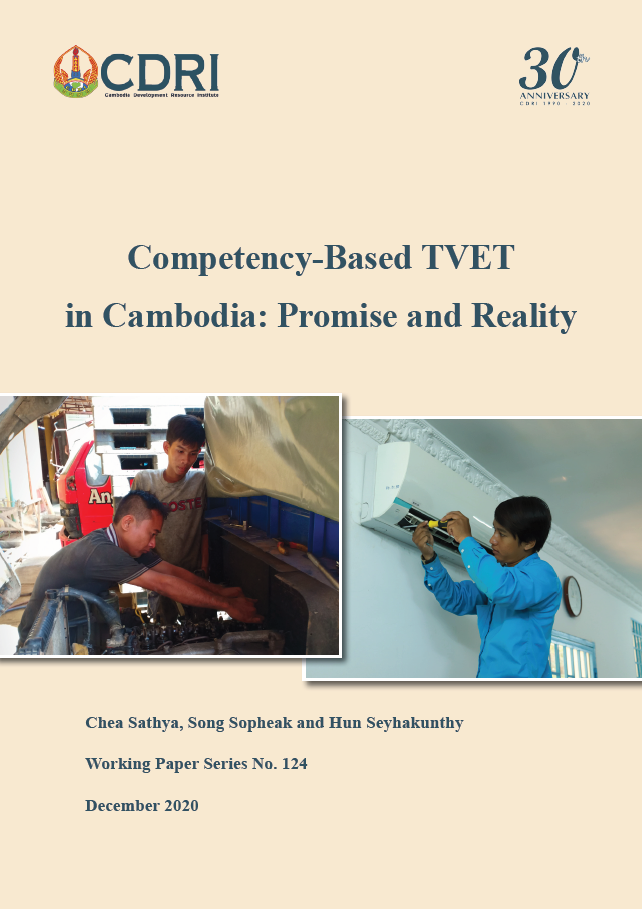
Competency-Based TVET in Cambodia: Promise and Reality
Modernisation brings new economic and social challenges around the globe. In this era of the knowledge economy, knowledge and skills have become valuable assets for national development. Many countries have been working out how best to enhance their knowledge and skills pool. Focus has recently turned to competency-based training (CBT), which is believed to enrich students with practical competenc...
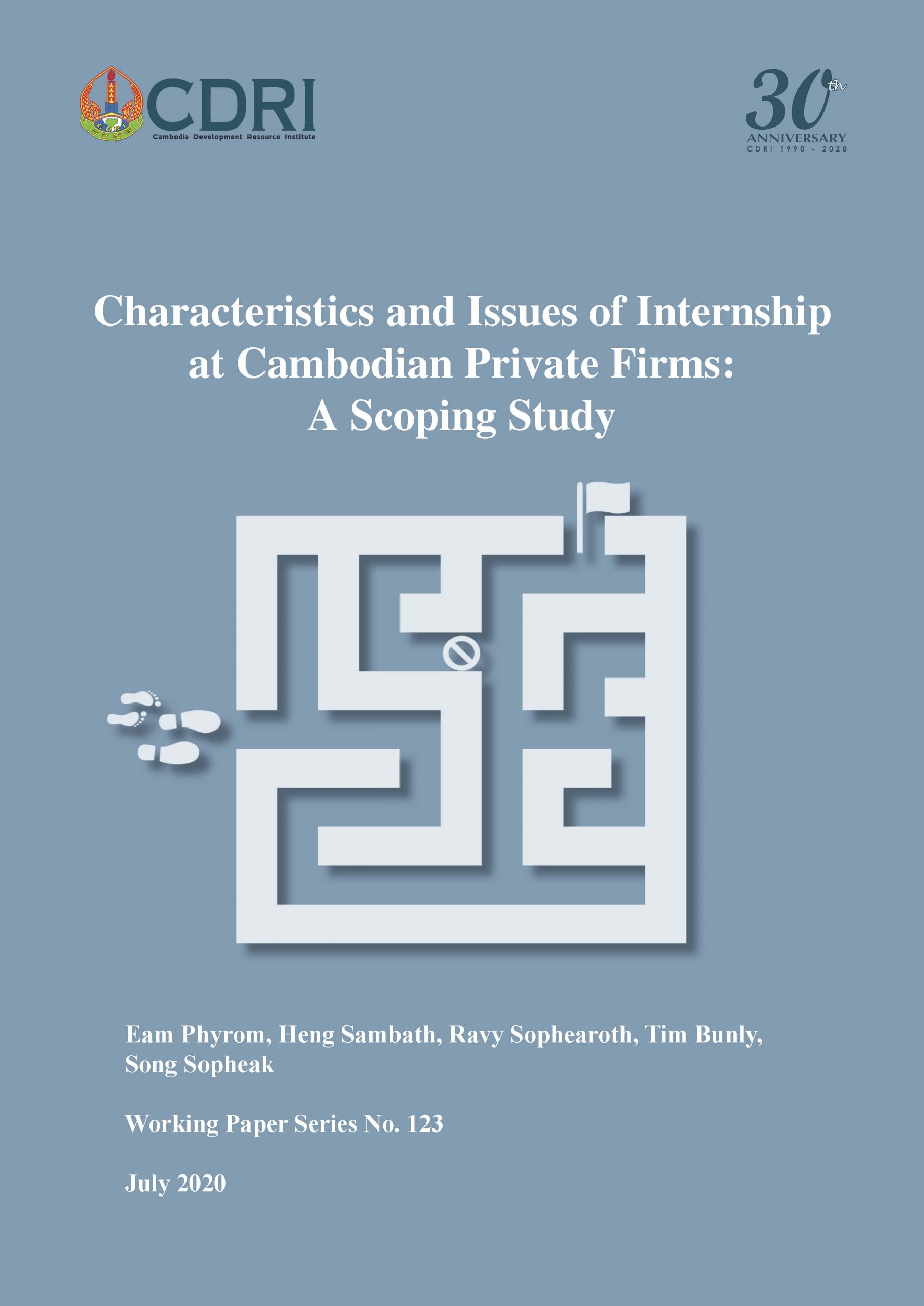
Characteristics and Issues on Internship at Cambodian Private Firms: A Scoping Study
To address the problems of skills mismatch, skills gaps and low-skilled labour that is hindering Cambodia’s economic development, the RGC issued the 2017 Internship Policy. Part of a larger endeavour to link providers of Technical and Vocational Education and Training (TVET) to private firms, the project aimed to give TVET students real, workbased experience. This paper aims to scope the fundament...
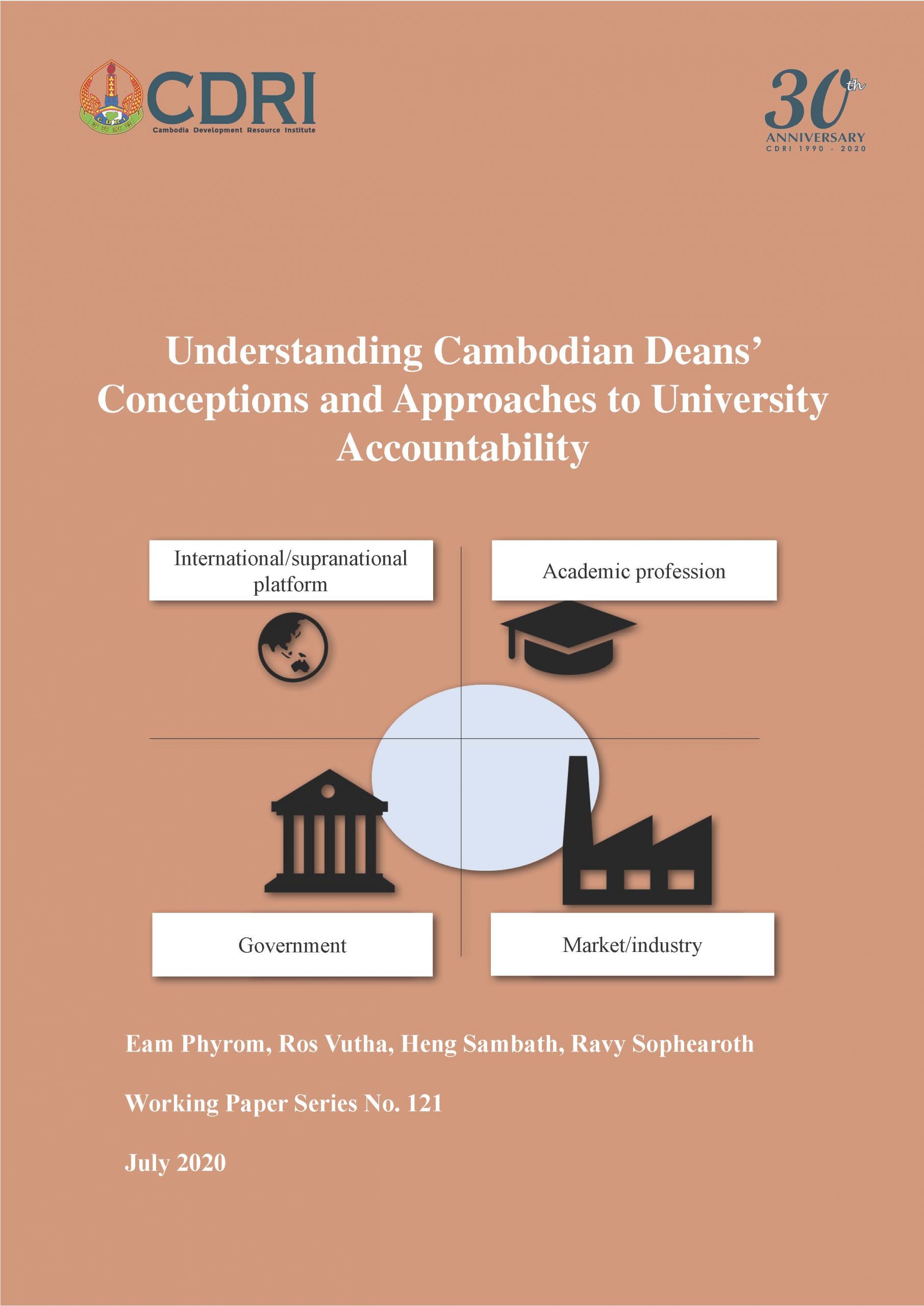
Understanding Cambodian Deans’ Conceptions and Approaches to University Accountability
University accountability in Cambodia, in both a theoretical and practical context, is ruled by complexity and there is no common understanding of what it means and how it should be assessed. This study examines how accountability in Cambodian universities is oriented towards different accounting constituencies – the government, the market, academia and international/supranational platforms. Semi...
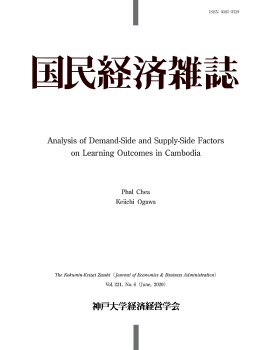
Analysis of Demand-Side and Supply-Side Factors on Learning Outcomes in Cambodia
The study applies the Hierarchical Linear Modeling(HLM) approach using the international learning assessment survey, PISA for Development (PISA-D), to examine the effects of demand-side and supply-side factors associated with academic performance in Cambodia. Findings from the study suggest that students' characteristics and family background are good predictors of students' test scores in Cambodi...
